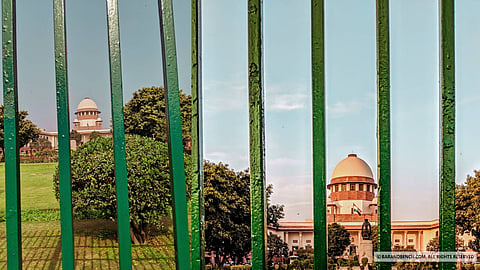
- News
- Columns
- Interviews
- Law Firms
- Apprentice Lawyer
- Legal Jobs
- हिंदी
- ಕನ್ನಡ

Default bail under first proviso of Section 167(2) of the Code of Criminal Procedure is a fundamental right and not merely a statutory right, the Supreme Court ruled on Monday (Fakhrey Alam v. State of UP).